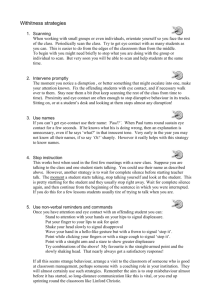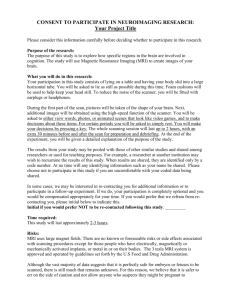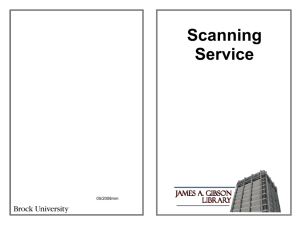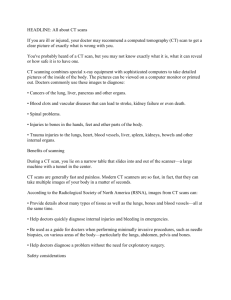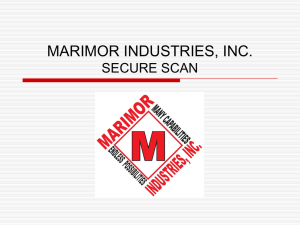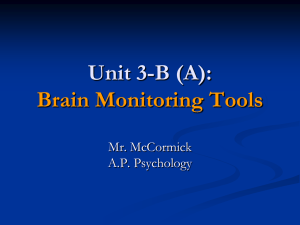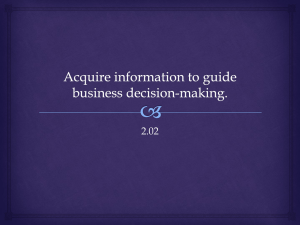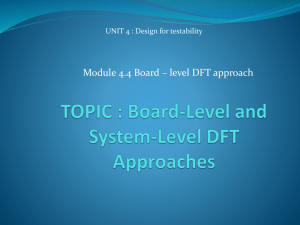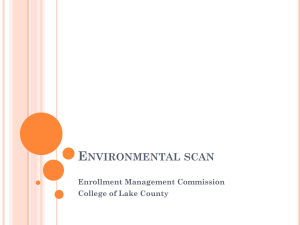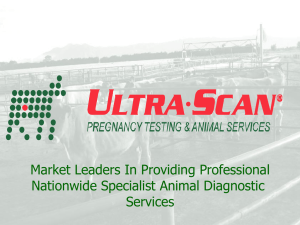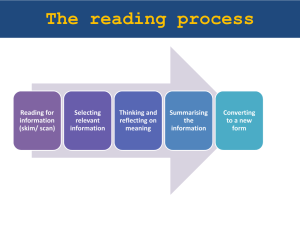Measuring Compliance - Information Security
advertisement
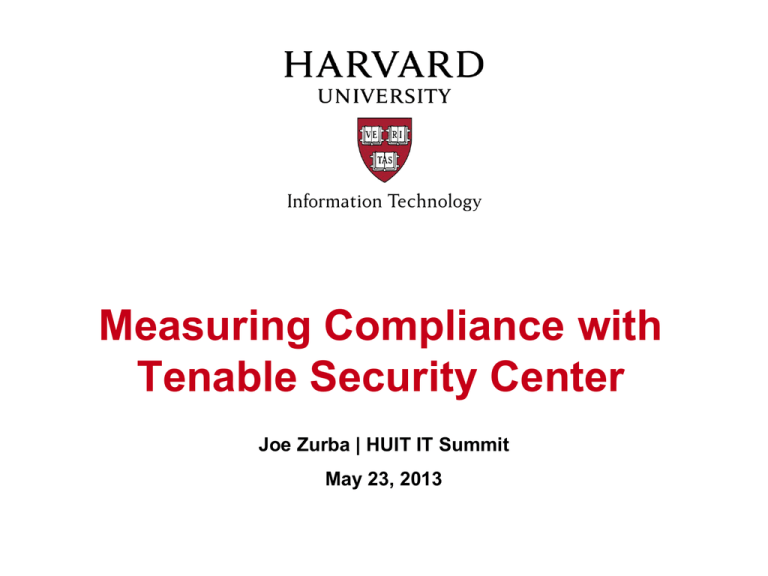
Measuring Compliance with Tenable Security Center Joe Zurba | HUIT IT Summit May 23, 2013 Agenda: • Introduction • What is compliance and why is it important? • What do we need to comply with? • What can we measure? • How is measurement accomplished? • What are the first steps? • What are the next steps? • Questions 2 Introduction 3 What is Compliance? • com·pli·ance /kəmˈplīəns/ Noun 1. The action or fact of complying with a wish or command. 2. The state or fact of according with or meeting rules or standards. Synonyms agreement - consent - accord - accordance - conformity • Compliance means conforming to a rule, such as a specification, policy, standard or law. 4 What is Compliance? • com·pli·ance /kəmˈplīəns/ Noun 1. The action or fact of complying with a wish or command. 2. The state or fact of according with or meeting rules or standards. Synonyms agreement - consent - accord - accordance - conformity • Compliance means conforming to a rule, such as a specification, policy, standard or law. 5 Why is Compliance Important? • Compliance provides a baseline posture from which we can build more mature process and controls • Compliance provides standards • Compliance helps to lower risk • Compliance helps to improve the quality of work • Compliance helps to mitigate potential penalties 6 What Do We Need To Comply With? • Depending on where you are within Harvard, you may need to comply with one or several of the following policies/standards: – HIPAA – FERPA – PCI – Massachusetts 201 CMR 17 – Harvard Information Security Policy – Harvard Research Data Security Policy – Contractual Obligations 7 What Can We Measure? • Government Compliance – FISMA, NIST, DISA STIG, CERT • Regulatory Compliance – HIPAA, Sarbanes-Oxley (SOX), FERPA • Corporate (Institutional) Governance, Risk, and Compliance (GRC) – Institutional Policy, PCI, ISO 27001 And… • Harvard Security Policy 8 How Is Measurement Accomplished? • Tenable Security Center Vulnerability Scanning – Used to measure systems for vulnerabilities in Operating Systems and common applications – Uses credentialed scans to unobtrusively log into systems to analyze patch status • Tenable Security Center Compliance Scanning – Uses industry standard or custom audit files to measure system configurations – Uses credentialed scans to unobtrusively log into systems 9 Audit Files 10 Audit Files 11 Audit Files 12 Scan Policy 13 Scan Policy 14 Scan Policy 15 Scan Policy 16 Add a Compliance Scan 17 Add a Compliance Scan 18 Add a Compliance Scan 19 Add a Compliance Scan 20 Analyze The Results 21 Analyze The Results 22 Analyze The Results 23 Analyze The Results 24 Analyze The Results 25 Analyze The Results 26 Analyze The Results 27 What Are The First Steps? • Measuring systems that store or process HRCI (PII) against 10 points of the HEISP: – Private IP addressing – Host-based firewall – Vulnerability Scanning and Patching program – External logging (Splunk) – Active, up-to-date Anti-Virus software – Unique credentials, default passwords changed, shared accounts disabled – Password length and complexity – Brute force credential lock-outs – Logging of successful and unsuccessful login attempts 28 What Are The Next Steps? • Establish a process for ongoing compliance scanning, reporting and remediation • Expand the service offering to comply with other regulatory standards – HIPAA – PCI • Define standard build audit files to scan for deviation 29 Where To Find More Information • For this presentation – Harvard iSite HUIT IT Security http://hvrd.me/13CFp4Z • ithelp@harvard.edu • 617-495-7777 30 Questions 31 Thank you. Joe Zurba | HUIT IT Summit June 6, 2013
